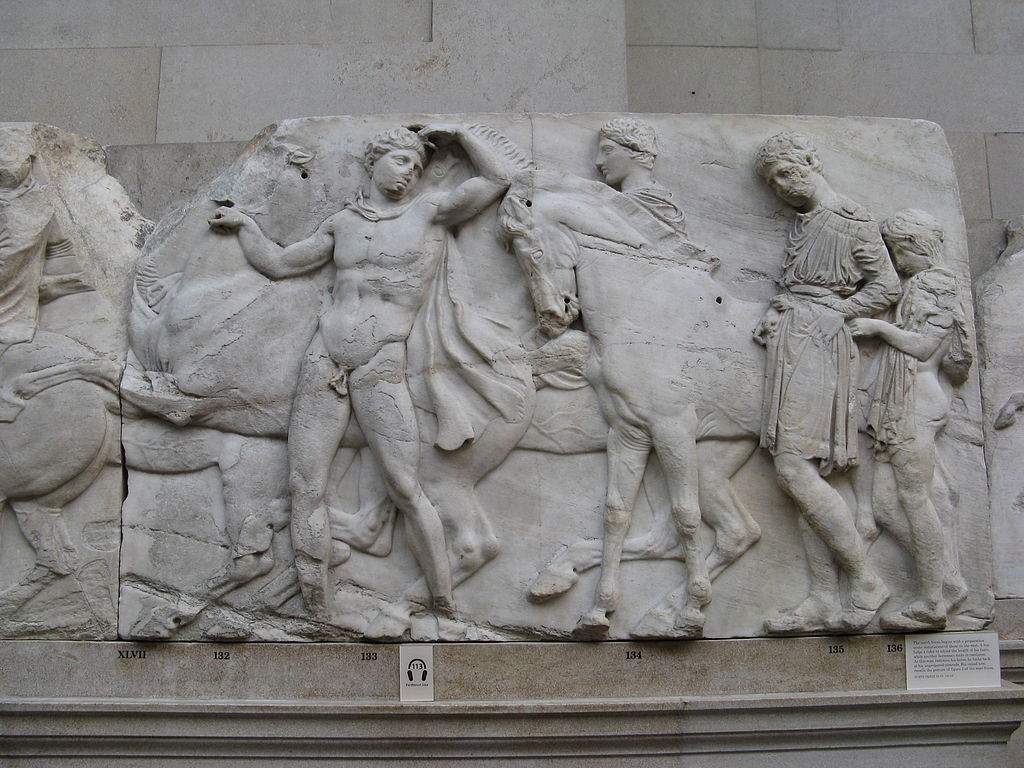Not very well received in Greece were the words of Hartwig Fischer, the director of the British Museum, who in an interview with the Greek newspaper Ta Nea (on Finestre Sull’Arte we have summarized the contents and reported some statements) reiterated that the London institution will not return to Greece the Elgin marbles, the ones that, in the early 19th century, Thomas Bruce, Earl of Elgin, removed from the Parthenon and sent to England. In particular, the justification put forward by Fischer caused much discussion: “the removal of the marbles was also a creative act,” Fischer in fact said during his interview.
In Athens, Fischer’s responses were considered provocative, primarily by George Vardas, secretary of the International Association for the Reunification of the Parthenon Sculptures, which has long been clamoring for the British Museum to return the works. “Seriously, what is so creative about the destruction of a temple and the spoliation of symbols of a nation’s ancient history?” tweeted Vardas, who in an article he wrote for the newspaper Neos Kosmos argued that Fischer’s statements “for many are a demonstration of an arrogance that is still rooted in an imperialist mindset,” that “the British Museum simply ’Photoshops’ history,” and that “Athens is the natural home of the entire Parthenon sculpture collection.” Greece also frowns upon the naming the Parthenon sculptures by the British: by calling them “Elgin marbles,” the British “not only show that they see themselves as the rightful inheritors of the cultural heritage and glories of the ancient Greeks,” Vardas said, “but go so far as to erase the Athenian origins of these sculptures.” Finally, Vardas hoped that Greece would become more active internationally to demand the return of the sculptures.
The reaction of the Greek government was also not long in coming. Culture Minister Myrsini Zorba stated that “Greece is the place of origin of the Parthenon marbles, Athens their city, the Acropolis and its museum their natural home.” As for Fischer’s statements, “it is unfortunate to hear this,” Zorba added, “from the director of the British Museum, who is also a well-known art historian. His statements degrade cultural heritage by turning it from an asset of inestimable universal value to a mere bargaining chip. Such views are diametrically opposed to the prevailing sentiment in the international field of culture.” But it would not only be a cultural problem: “They are reminiscent of colonialism,” said the Greek minister of culture, “and they ignore the international debate and the declarations of UNESCO, especially those concerning mutilated monuments, which deserve to be reunited and restored according to the fundamental principle of integrity, as required by the 1972 UNESCO Convention.” Also speaking on the issue was the director of the Acropolis Museum, Dimitrios Pandermalis, who told German radio Deutschlandfunk that “the complete return of the Parthenon marbles is the only solution. Everything that is inextricably linked to the monument must be reunited.”
In England, too, however, an intense debate has raged around the fate of the Elgin Marbles. Jonathan Jones, the Guardian’s art critic, explained that Fischer’s interview broke the British’s traditional silence on the subject (and, moreover, did so with “uninhibited” statements), thus triggering a flood of negative reactions. Moreover, he added that the British Museum director’s statements might seem provocative, but at the same time he wrote that the “creative act” was to give birth to a museum, the British, whose generosity has allowed it to “expand our horizons.” For Jones, the return of the marbles would be a mistake for two reasons: the first is that the achievements of the ancient Greeks would not be a national heritage of Greece today, but of the whole world, and the second is that actually having brought the marbles to London would have been an act of reverence to Greece (they were brought there at the height of neoclassicism, when “the civilization of ancient Greece was seen as the source of all wisdom, beauty and truth”). From the columns of the same newspaper, actor and playwright Alexi Kaye Campbell called Jones’s attitude “patronizing” and asserted that the Greeks have every right to get the Elgin marbles back, and that Greece, as a relatively young state, has a need to build its identity (especially after centuries of occupation) even with the symbols of its ancient history.
Photo: one of the Parthenon marbles at the British Museum. Ph. Credit Yair Haklai
 |
| Parthenon marbles, pro-return committee: British Museum makes Photoshop to history |
Warning: the translation into English of the original Italian article was created using automatic tools. We undertake to review all articles, but we do not guarantee the total absence of inaccuracies in the translation due to the program. You can find the original by clicking on the ITA button. If you find any mistake,please contact us.